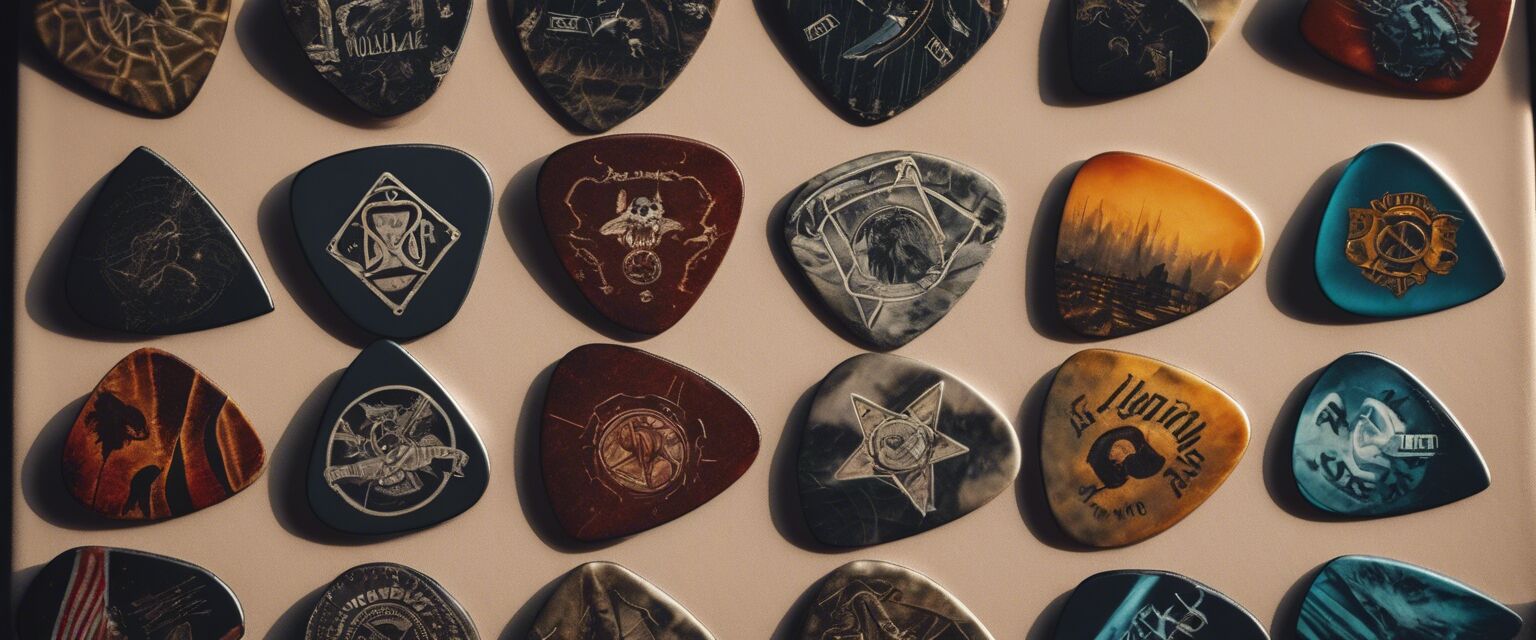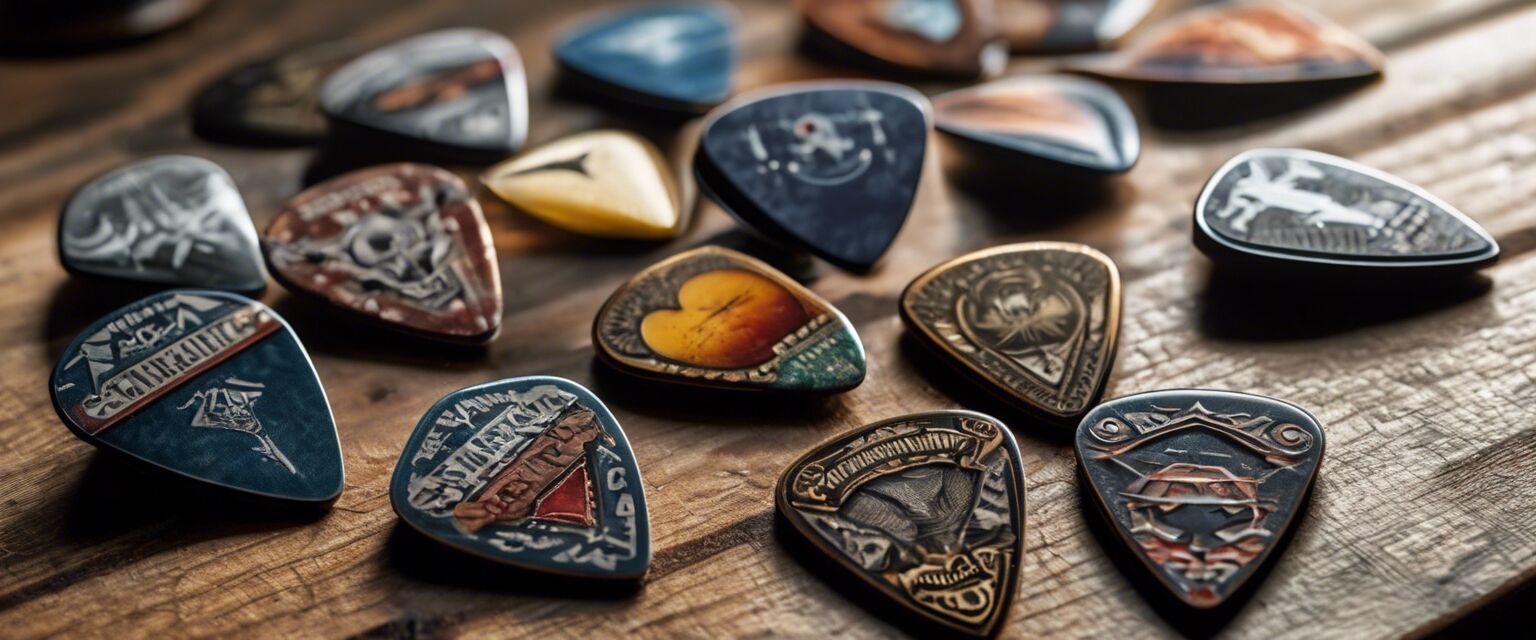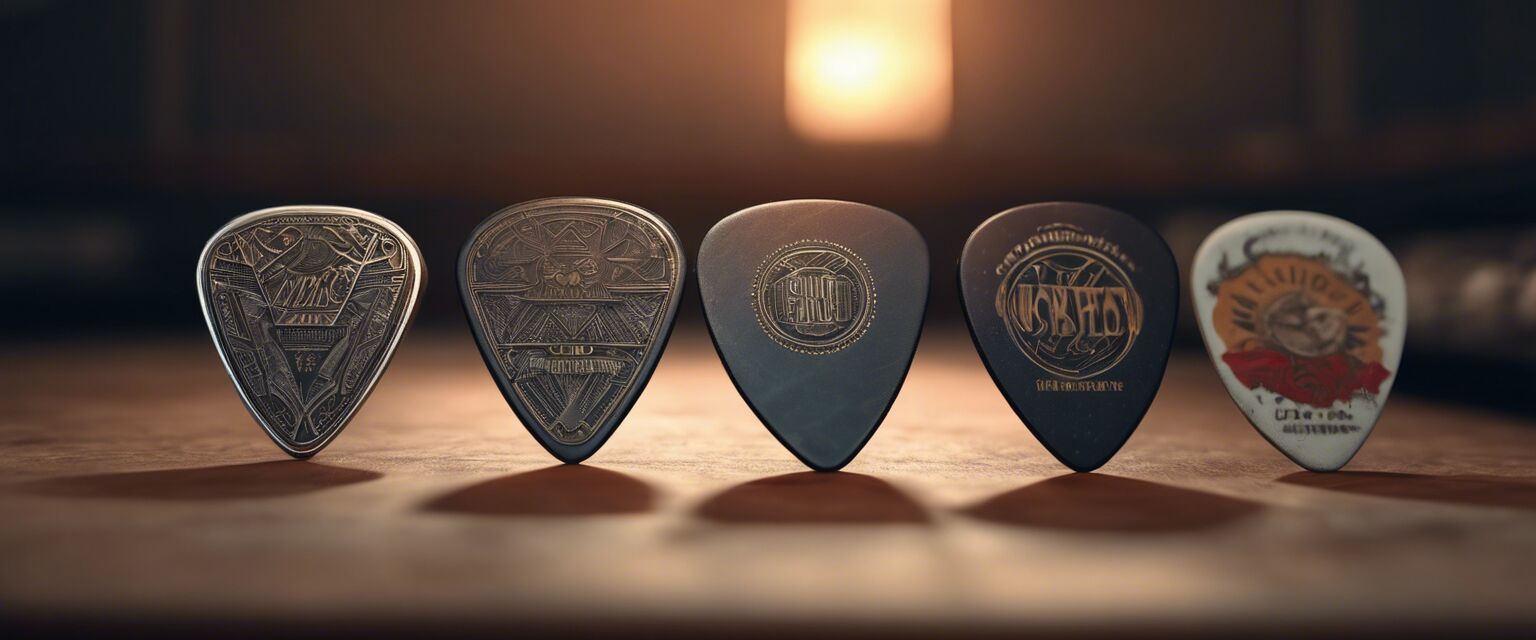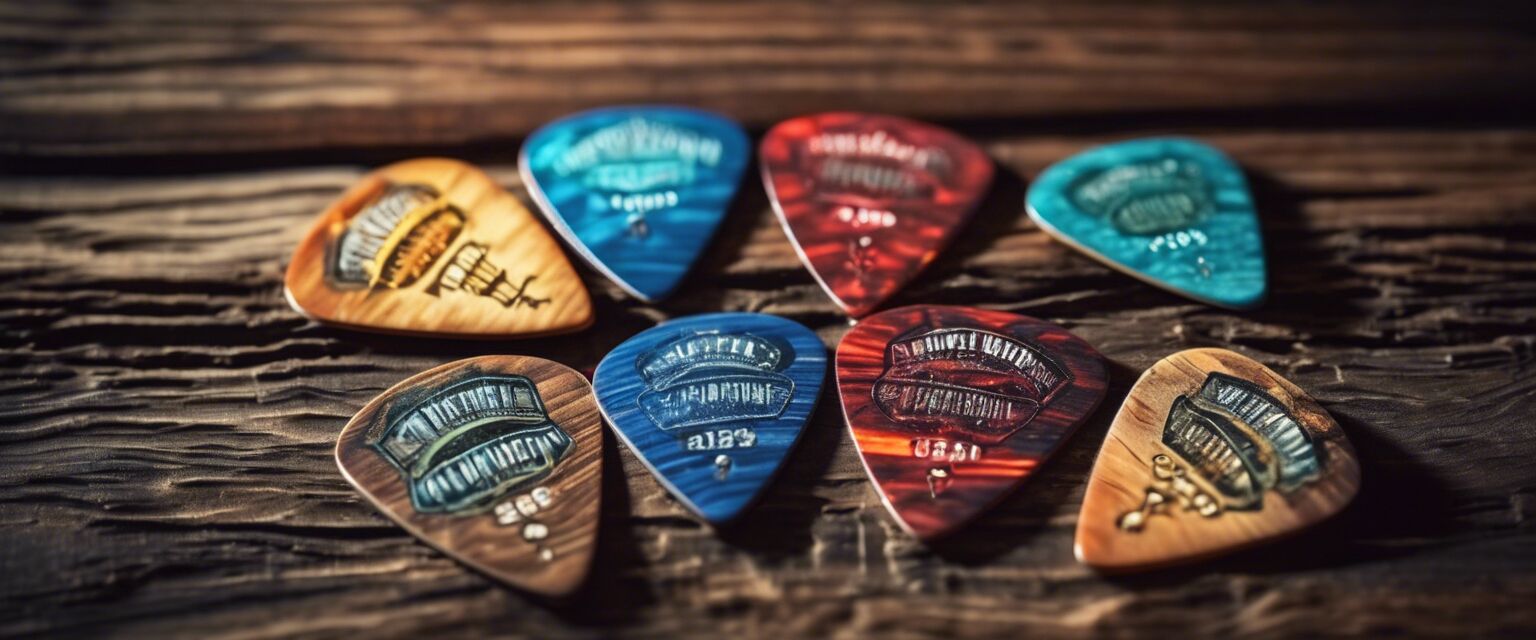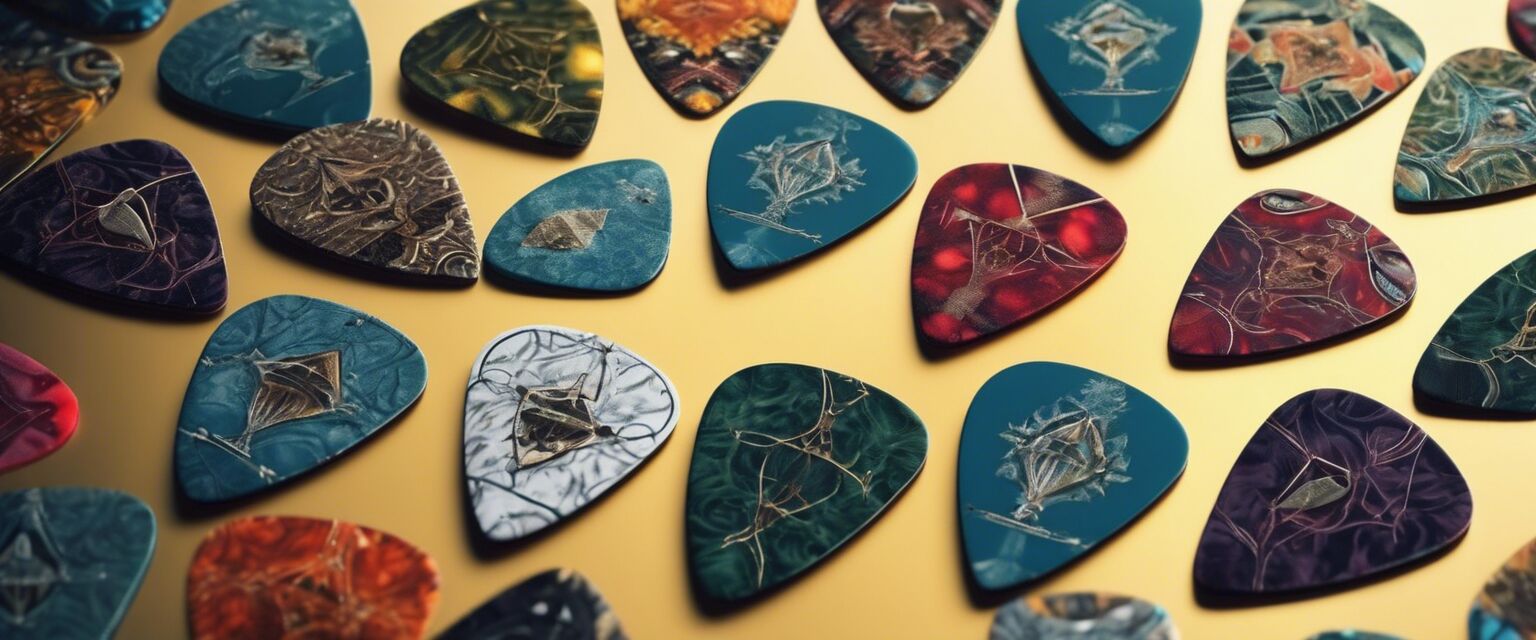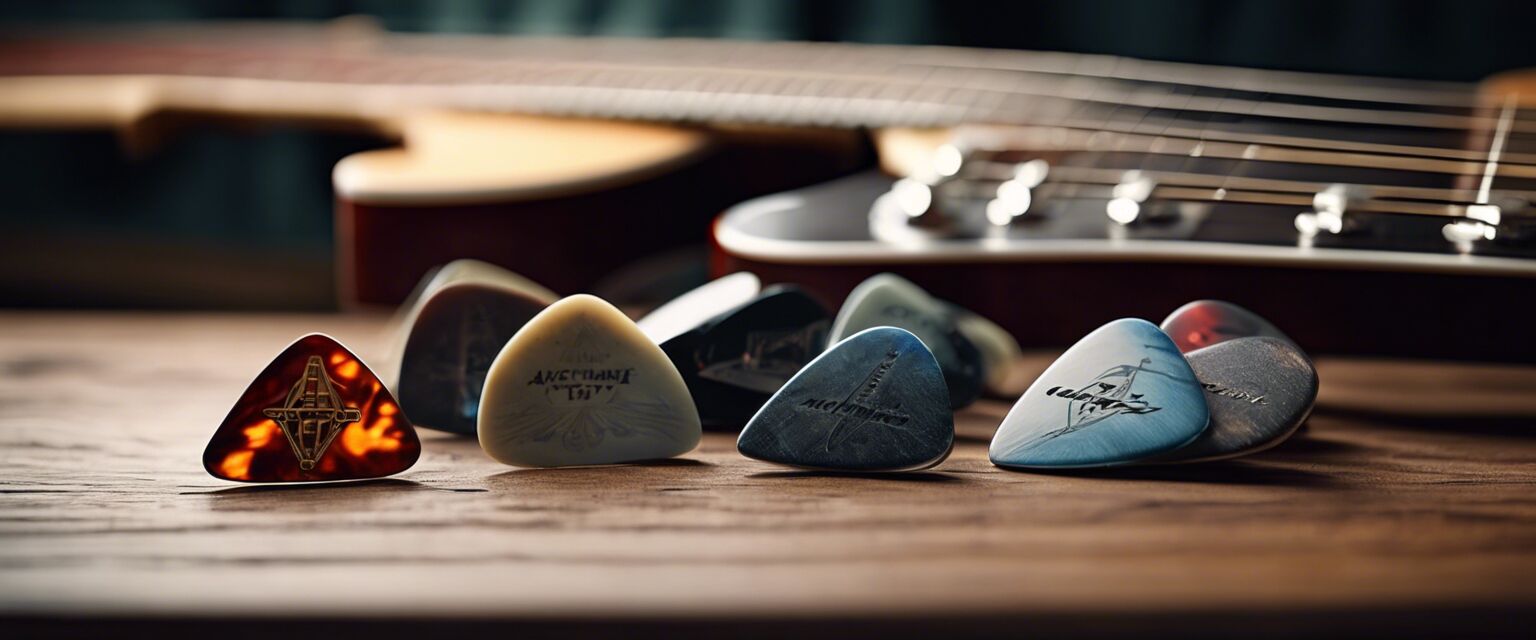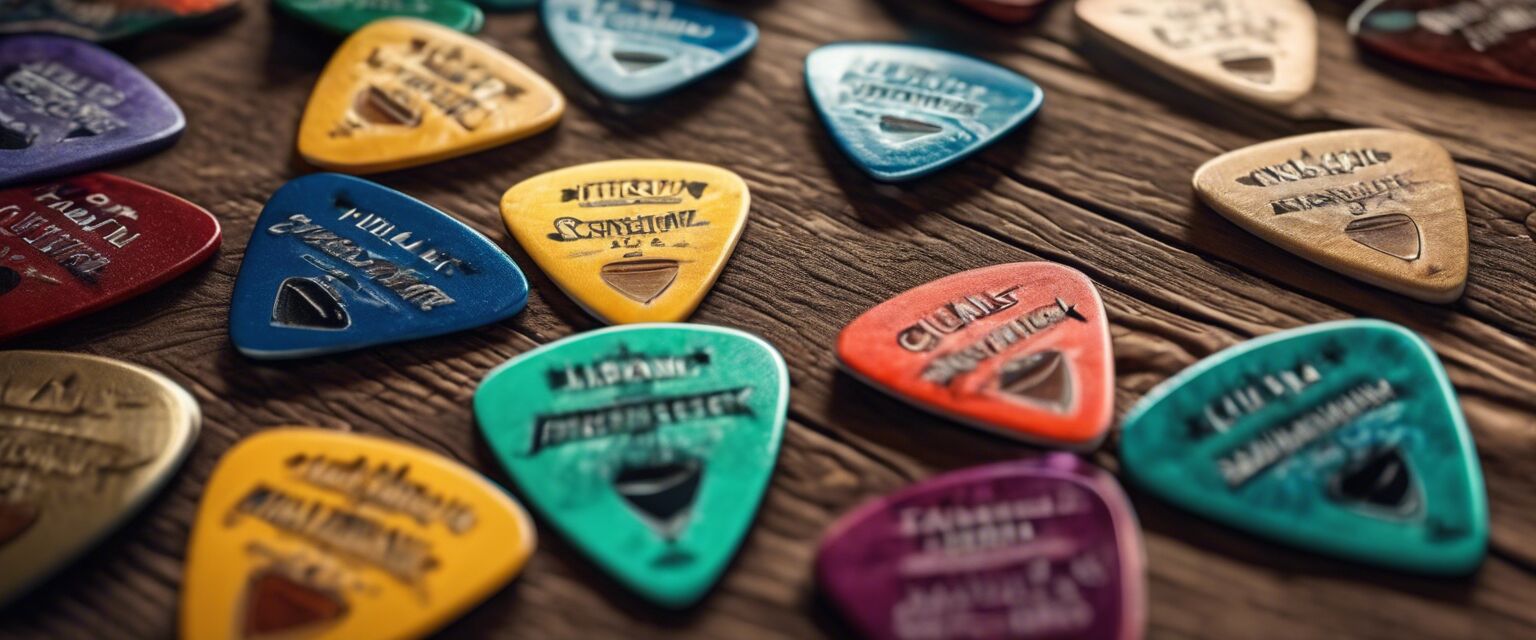
Guitar Pick Size and Thickness
Key Takeaways
- The size and thickness of guitar picks significantly influence playability and sound.
- Custom options for guitar picks allow players to fine-tune their experience based on personal preferences.
- Understanding different materials can help in selecting the ideal guitar pick.
Guitar picks, also known as plectrums, are small but crucial tools for guitarists. Their size and thickness can drastically impact how we play and the sound produced. For beginners and seasoned musicians alike, understanding the ins and outs of guitar pick dimensions is essential for enhancing playability and achieving the desired tone. In this article, we delve into the importance of guitar pick size and thickness, exploring how they affect your experience and providing insights into personalized options.
Understanding Guitar Pick Size
Guitar picks come in various sizes, which can be generally categorized into three main types:
- Standard: Typically around 25mm in length and 20mm in width.
- Large: Generally larger than 30mm, providing a firm grip for more robust strumming.
- Jazz: Smaller than standard picks, usually 21mm in length and 16mm in width, favored for precision.

Impact of Size on Playability
The size of a guitar pick plays a vital role in how it's handled during play. Here's how:
| Size | Advantages | Disadvantages |
|---|---|---|
| Standard | Versatile, suitable for various playing styles. | May not be ideal for precise picking. |
| Large | Good for heavy strumming, stable grip. | Can feel bulky and cumbersome for intricate work. |
| Jazz | Excellent for fast and precise playing. | Too small for some players' preferences. |
The Role of Thickness in Guitar Picks
Thickness is another crucial aspect. Guitar picks typically have a thickness range from 0.38mm to 2.0mm. Here's how thickness affects sound and playability:
- Thin Picks (0.38mm - 0.7mm): Great for strumming, producing a brighter sound.
- Medium Picks (0.7mm - 1.0mm): Offers a balance between strumming and picking.
- Thick Picks (1.0mm - 2.0mm): Favored by lead guitarists, providing a darker tone and more control.
How Thickness Affects Tone
Using thick picks results in a more robust sound, while thinner picks can allow for more fluidity and articulation in notes. Hereâs a comparison:
| Thickness | Sound Characteristics | Ideal For |
|---|---|---|
| Thin | Bright, snappy sound. | Strumming, rhythm parts. |
| Medium | Balanced responsive sound. | Versatile play, any style. |
| Thick | Warm, full-bodied sound. | Lead playing, intricate solos. |
Personalized Guitar Picks
With advancements in technology, personalized guitar picks are becoming increasingly popular. Players can choose the size, thickness, and even the design to match their individual styles. Custom guitar picks can enhance playability and make a personal statement.
Benefits of Personalized Picks
- Catered to individual grip preferences for enhanced comfort.
- Unique designs can showcase personal style.
- Perfect for gifts or keepsakes.

Choosing the Right Pick for You
When selecting a guitar pick, keep in mind the following factors:
- Playing Style: Consider whether you strum or pick more.
- Comfort: Choose sizes that feel good in your hand.
- Sound Preference: Determine the sound you wish to achieve.
- Experimentation: Donât be afraid to try various sizes and thicknesses to find what suits you best.
Beginners Section
If you're new to guitar, start with medium picks as they provide a good balance to explore different styles. Consider purchasing a variety set to test various sizes and thicknesses.
Final Thoughts
Choosing the right guitar pickâs size and thickness can unleash your full potential as a guitarist. Personalizing your pick can not only enhance your playing experience but also reflect your personality. Dive deeper into our other guides on acoustic guitars, electric guitars, and guitar accessories to further your guitar journey!
Pros
- Enhanced playability through personalized options.
- Availability in various sizes and thicknesses catering to personal taste.
- Ability to influence tone with the right pick choice.
Cons
- Variety can be overwhelming for beginners.
- Custom options may have higher costs.
- Difficult to choose the perfect pick without experimentation.
